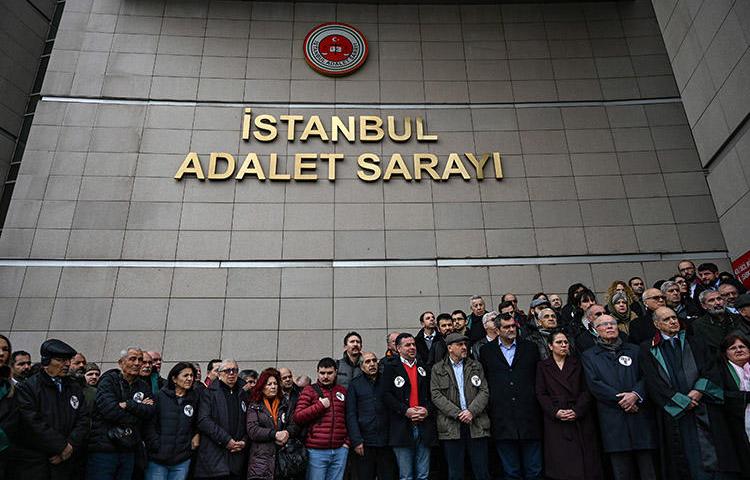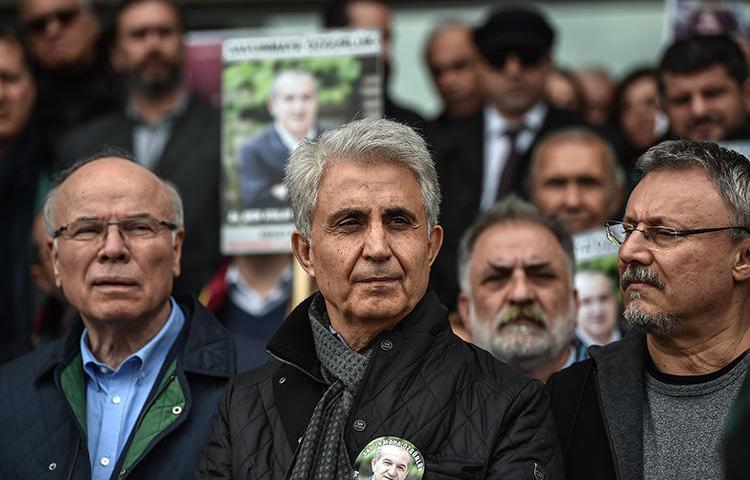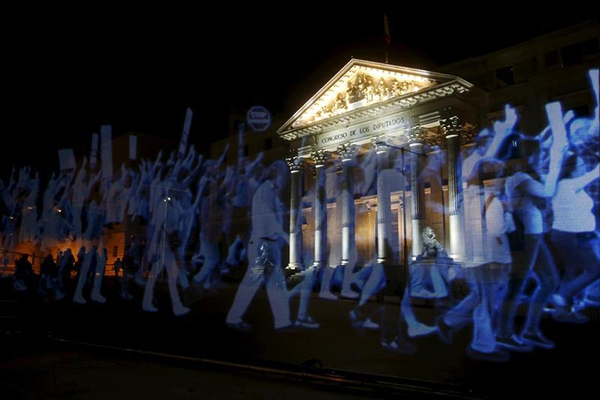
A year after Mzia Amaglobeli’s arrest, press freedom groups demand her release
January 12, 2026—On the first anniversary of the arrest of prominent Georgian journalist and Sakharov Prize laureate Mzia Amaglobeli, the Committee to Protect Journalists (CPJ), the International Press Institute (IPI), and Reporters Without Borders (RSF) are urging Georgian authorities to immediately release her and credibly investigate alleged violations of her rights. The first woman journalist…

CPJ, partners call for release of slain Nigerian journalist’s body
The Committee to Protect Journalists, the International Press Institute, and the Media Foundation for West Africa released a joint statement on Tuesday, September 3, calling on Nigerian authorities to ensure the body of slain journalist Onifade Emmanuel Pelumi is released to his family and that those responsible for his death are identified and held to account. …

Cyberattackers use easily available tools to target media sites, threaten press freedom
When exiled Russian news website Meduza was hit with a flood of internet traffic in mid-April, it set off alarm bells among the staff as the deluge blocked publishing for more than four hours and briefly rendered the site inaccessible for some readers. It was the largest distributed denial of service attack (DDoS) attack in…

Turkey can jail Cumhuriyet staff ‘at any minute,’ lawyers say
Istanbul, April 22, 2019–The Committee to Protect Journalists called on Turkish authorities to not take eight former employees from the daily Cumhuriyet into custody until the Supreme Court has heard their colleagues’ appeal. At a press conference in Istanbul today, lawyers representing the employees said they would ask authorities to delay acting on a local…

Turkey convicts Cumhuriyet journalists on terrorism charges
Istanbul, April 25, 2018–An Istanbul court today convicted 14 people affiliated with the independent daily Cumhuriyet of aiding terrorist organizations and sentenced them to jail terms ranging between three and seven years, the newspaper reported. The court placed the journalists on probation and banned them from traveling until the appeals process has ended, according to…
Report highlights Turkey’s troubled press freedom record
Turkish authorities should end impunity for attacks against journalists, decriminalize insult and defamation, stop harassing critical news outlets, and release imprisoned journalists, according to “Press Freedom in Turkey’s Inter-Election Period,” a report published Saturday by the Vienna-based International Press Institute. Muzaffar Suleymanov, CPJ’s Europe and Central Asia program researcher, contributed to the report.

Why Spain’s new gag law is threat to free flow of information
On July 1 a public security law is due to come into force in Spain amid an increasingly vocal chorus of concern among the media and press freedom groups. The bill–dubbed the “ley mordaza,” or “gag law,” by opposition groups–would define protests in front of parliament and other government buildings as a “disturbance of public…

Outdated secrecy laws stifle the press in South Africa
Nelson Mandela regularly harangued the media once he’d been freed after 27 years of imprisonment by South Africa’s apartheid government. He would call individual journalists when he liked or disliked something they had written or when he wanted to advance a political lobby.